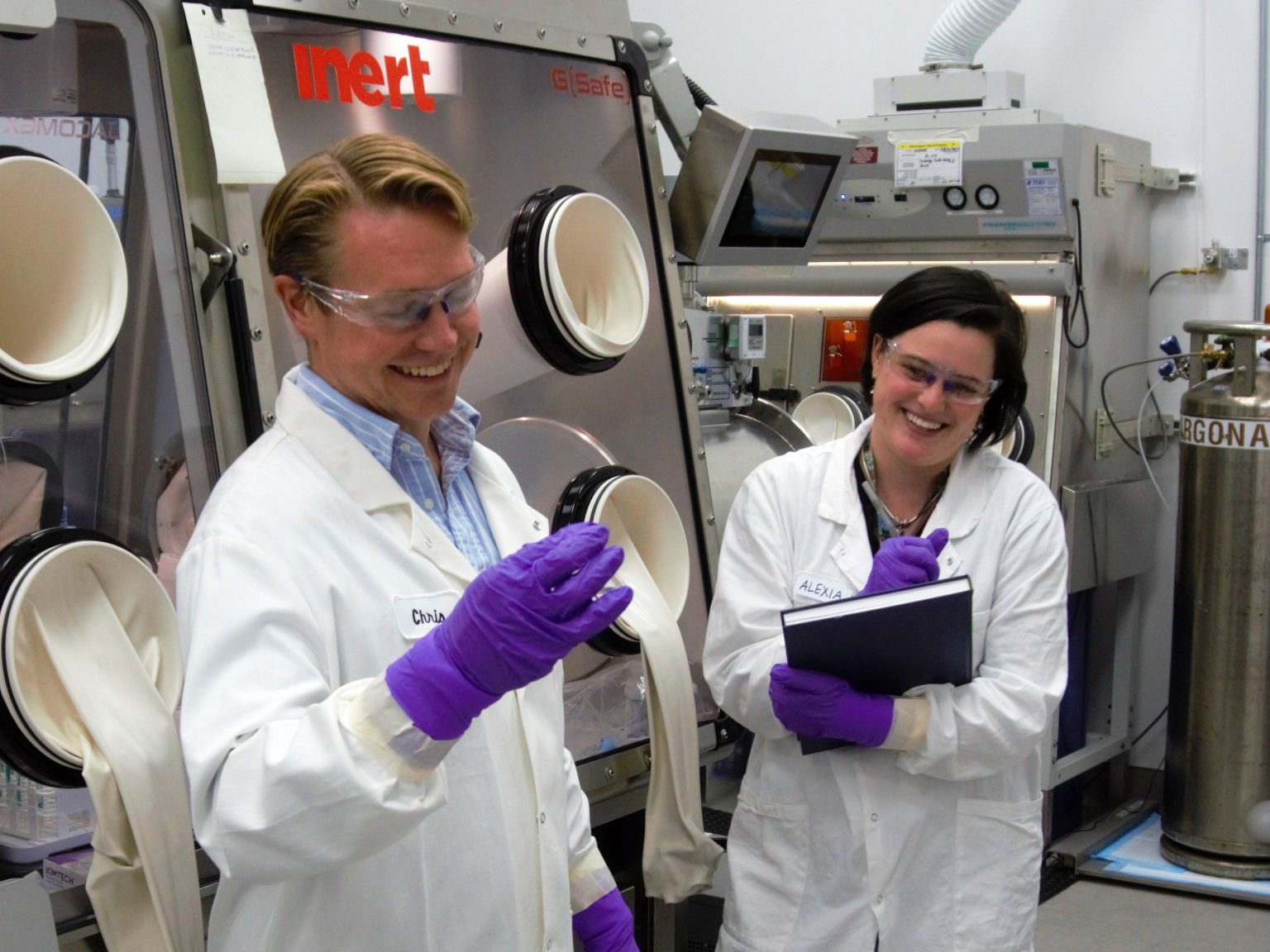Chris Dunckley, director of chemistry and engineering at TerraPower Isotopes, is leading a groundbreaking project to extract actinium-225, a rare radioisotope with immense potential in cancer therapy, from decaying U.S. weapons waste. This endeavor involves transforming Cold War-era nuclear materials, handled remotely due to their high radioactivity, into a life-saving medical resource. Dunckley’s leadership is crucial in orchestrating a diverse team of specialists, including health physicists, mechanical engineers, and radiochemists, to navigate the intricate process of extracting and purifying actinium-225. The complexity of this undertaking surpasses anything Dunckley has encountered in his career, requiring the seamless integration of various engineering disciplines.
Scott Claunch, president of TerraPower Isotopes, lauds Dunckley’s unique blend of qualities, highlighting his inclusivity, optimism, humility, and disciplined, evidence-based decision-making process as essential ingredients for his success. These attributes, coupled with his clear-headed assessment of ideas and opportunities, position Dunckley as a true “uncommon thinker.” TerraPower Isotopes, a subsidiary of the next-generation nuclear power company TerraPower, achieved a significant milestone in October by becoming the first commercial-scale producer of actinium-225. Dunckley’s expertise has been instrumental in developing the processes that enable the startup to purify enough actinium-225 to potentially produce up to 400,000 doses of cancer therapies annually for many years, transforming the potential of this rare isotope into a tangible reality for patients.
Dunckley’s journey to this impactful role began in the UK at the age of 16 when he chose chemical engineering as his specialization. His academic pursuits culminated in a doctorate from the University of Cambridge and a master’s in management science and engineering from Stanford. During his research at Cambridge, Dunckley’s work on visualizing the flow of liquids and gases instilled in him an appreciation for the complexities of the physical world and the limitations of theoretical models. Driven by a desire to tackle real-world challenges, particularly climate change, Dunckley transitioned from academia to the industry, taking a position at Chevron to work on renewable fuels. This experience provided valuable insights into scaling up chemical processes from the laboratory to industrial production, a crucial skill for his future endeavors.
Dunckley’s commitment to addressing climate change led him to Rennovia, a startup focused on producing nylon from renewable corn sugars rather than petroleum. This role proved pivotal in shaping his leadership style and approach to team building, fostering a positive and productive work environment. At Rennovia, Dunckley also gained experience in defining and implementing effective business models, a lesson learned from the company’s founders. Unfortunately, a drop in oil prices impacted the startup’s ability to secure funding, leading to its closure. Undeterred, Dunckley continued his career at Arzeda, a protein design startup that utilized artificial intelligence. This experience honed his ability to anticipate future challenges and accelerate process development by strategically thinking several steps ahead, even with incomplete information.
Attracted by TerraPower Isotopes’ mission of transforming nuclear waste into life-saving cancer therapies, Dunckley found the opportunity to combine his diverse skills and experiences for a positive impact. He saw the company’s work as a compelling story he wanted to be part of, aligning with his commitment to addressing both climate change and human health. The development of actinium-225 therapies stems from initial tests conducted nearly a decade ago demonstrating their effectiveness against treatment-resistant prostate cancer. These therapies fall under the broader field of targeted cancer treatment using antibodies that deliver isotopes or toxins directly to cancer cells. Actinium-225 serves as a potent payload in these radiopharmaceuticals, effectively destroying targeted cancer cells.
Actinium-225 holds promise for treating a wide range of solid tumor cancers, including breast, colon, and liver cancers. Currently, drug developers are conducting various phases of clinical trials to evaluate the efficacy and safety of actinium-225-based therapies, striving towards FDA approval. While Dunckley has played a pivotal role in TerraPower Isotopes’ achievements, he emphasizes the importance of teamwork in tackling complex problems. He believes that collaborative efforts and brainstorming are essential for finding solutions to intricate challenges, highlighting the collective strength of a team over individual contributions. His leadership philosophy centers on fostering collaboration and embracing diverse perspectives to drive innovation and make a meaningful difference in the fight against cancer.


